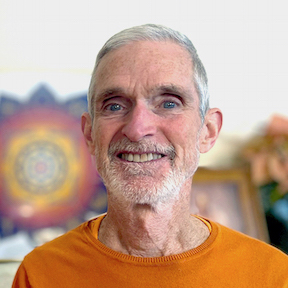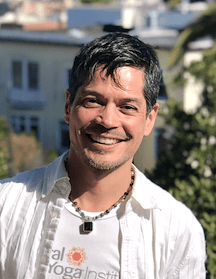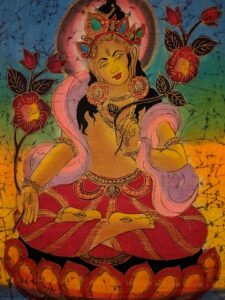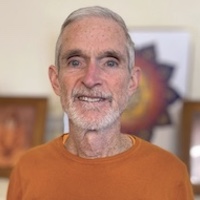Teaching of the Month: Recovering Natural Joy
by Swami Ramananda
Many of us think of joy as an experience we have when something special happens. We may plan specific activities that we think will bring us joy, such as a vacation, some entertainment, or dining out. This thinking is so prevalent in our culture that we don’t realize how limiting it is, since it is built on an unconscious belief that enjoyment comes from something we do or get.
As a new calendar year begins, we decided to practice the understanding that joy is a natural state. We intend to explore what it means to enjoy the present moment and what prevents our enjoyment of it. Sri Swami Satchidananda often spoke about peace and joy as our birthright, our very nature. He encouraged us to analyze our actions in order avoid anything that would disturb that natural condition.
Another one of the primary obstacles to experiencing joy is the way we get caught up in our heads — constantly planning, judging, and worrying about ourselves and the things we think will bring happiness. A mind that is preoccupied this way is effectively cutting us off — both from the heart, where we experience love and connection, and from the present moment, the only moment in which true joy can occur.
It inspires me to remember that it is our nature and birthright to experience joy, and that I can choose to enjoy this moment as it is without needing anything to make it better. Even though it may not be easy at times to cultivate this feeling, I plan to enjoy trying.
You can join Swami Ramananda, in-person or online, for Satsang: Setting an Intention for a New Year on Saturday, January 4 @ 5:30 pm – 6:30 pm PST. Learn more.
 Swami Ramananda C-IAYT, E-RYT 500, is the Executive Director of the Integral Yoga Institute in San Francisco and a gr.eatly respected senior teacher in the Integral Yoga tradition, who has been practicing Yoga for over 45 years. Ramananda offers practical methods of integrating the timeless teachings and practices of Yoga into daily life, and transforming the painful aspects of human experience into steps toward realizing one’s full potential.
Swami Ramananda C-IAYT, E-RYT 500, is the Executive Director of the Integral Yoga Institute in San Francisco and a gr.eatly respected senior teacher in the Integral Yoga tradition, who has been practicing Yoga for over 45 years. Ramananda offers practical methods of integrating the timeless teachings and practices of Yoga into daily life, and transforming the painful aspects of human experience into steps toward realizing one’s full potential.
He leads all levels of Yoga teacher trainings and programs around the globe. Ramananda co-developed the Stress Management Teacher Training program and has trained many teachers to bring Yoga into corporate, hospital and medical settings. He a founding board member of Yoga Alliance and is a co-founder of The Spiritual Action Initiative which brings together individuals committed to working for social justice for all beings and for the care and healing of our natural world. His warmth, wisdom and sense of humor have endeared him to many.







